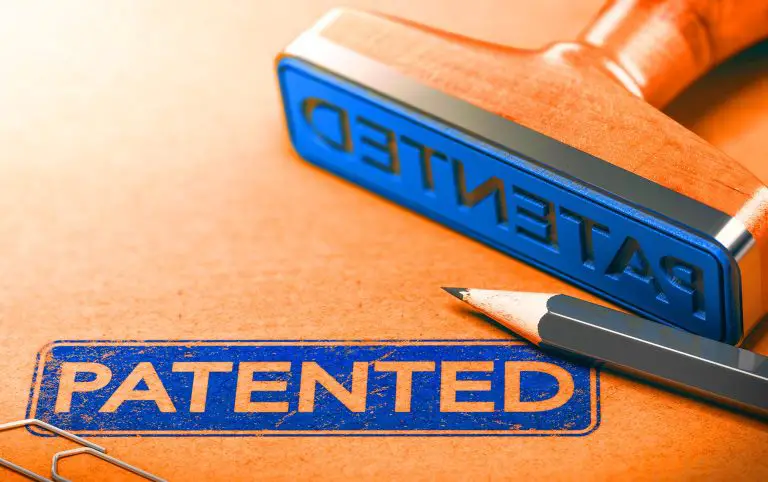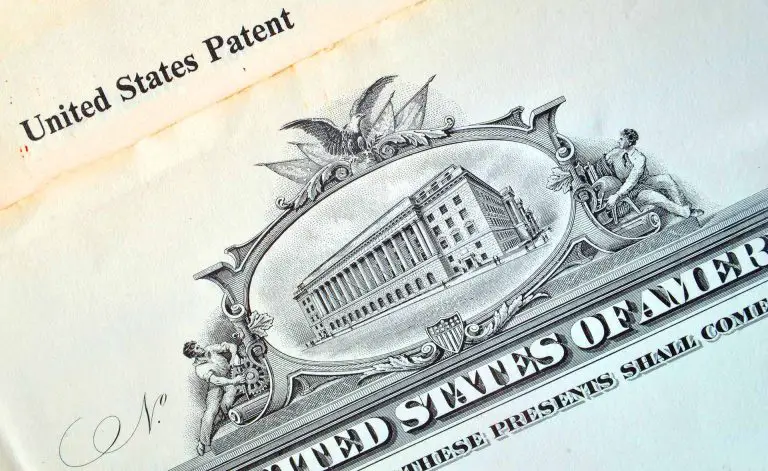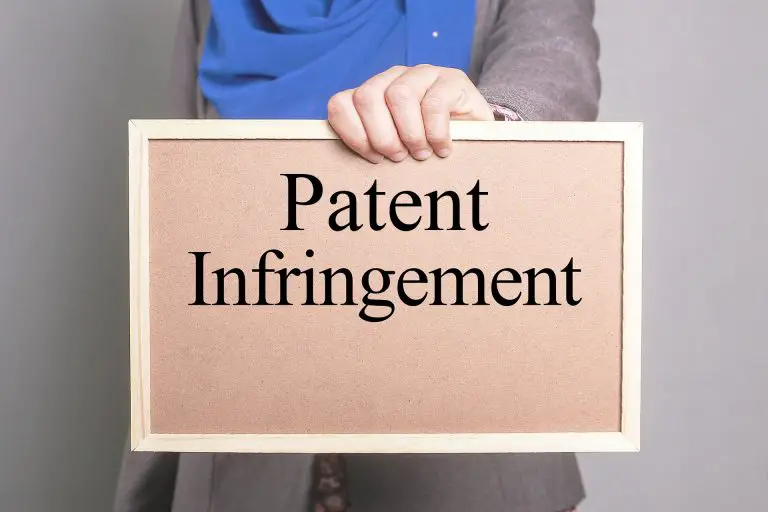Patent Trolls. What? How? and Why?
What Are Patent Trolls?
Patent trolls come in many different shapes and forms. Patent trolls are typically private persons or businesses that purchase patents and then seek to profit from their patent purchase by bringing patent infringement lawsuits against businesses or companies, often alleging that they are making unauthorized use of the patents they acquired. Patent trolls can bring down small companies because patent lawsuits are very expensive to defend against.
Patent trolls often purchase patents from struggling businesses or businesses that are going bankrupt so that they can take the patents an enforce the patents against other companies that produce products that they claim infringe upon their patent rights.
As you may know, patents allow the patent holder to stop others from using, making, selling, and importing the patented invention to the United States without the patent holder’s permission.
Patent trolls take advantage of these patent rights by enforcing them against others who they claim infringe upon their patent rights.
Patent trolls usually have no intention of using, making, or selling the patented invention and purchase patent rights solely to enforce them against other companies to profit from such enforcement.
Patent trolls profit from the patents they purchase by targetting companies and asking them to pay a one time fee or recurring licensing fees to use the patented invention or technology.
Patent trolls’ actions are usually legal in nature, but they are contrary to the spirit of patent law, which grants patents to inventors who make new products that improve our daily lives and not for the purpose of only enforcing patent rights against businesses.
Patent trolls are most prevalent in the United States. Other countries, such as those in Europe do not suffer as much as Americans do from patent trolls.
This is mainly due to the fact that the European system often awards attorneys fees to the party that loses a lawsuit, discouraging those who do not have valid patent claims from bringing a lawsuit for patent infringement.
In the United States, every party typically pays its own attorney fees. Since patent trolls don’t have to worry about paying the other party’s attorneys fees to defend against the patent troll’s patent infringement lawsuit, patent trolls don’t have the incentive not to bring a lawsuit against other persons or entities.
How do Patent Trolls Operate?
Patent trolls typically operate in the following ways:
- Purchasing patents from struggling businesses, businesses going bankrupt, or other targets,
- Patent trolls then find targets that are using, making, or selling a product that they claim infringes upon their purchased patent,
- Patent trolls then threaten those companies with patent infringement lawsuits to extract money from them.
So, why are patent trolls often successful in operating this way?
Patent trolls are often successful because patent infringement lawsuits typically cost a lot of money. Defending against a lawsuit can cost tens of thousands of dollars, so in order to avoid costly litigation, parties often agree to pay the patent troll a fee to settle the matter. This is exactly how patent trolls flourish.
Patent trolls often purchase patent rights without the intention of producing or selling a patent product, but rather to enforce the patent rights they acquired by targetting business that they claim infringe upon the patents they purchased.
Patent trolls strategically choose businesses that are vulnerable and don’t have the money to defend against a patent infringement lawsuit in order to get them to settle and pay a licensing fee to use the patent troll’s patented invention instead of the innocent business having to defend against a patent infringement lawsuit.
Some patent trolls have a reasonable basis for bringing a patent infringement lawsuit while other patent trolls often bring frivolous lawsuits against businesses to extract money from them.
These actions are against the spirit of why patent law was implemented, which is to foster innovation and encourage inventors to make new things in exchange for a limited monopoly over their invention.
Who Do Patent Trolls Target?
Patent trolls choose their targets carefully to increase their chances of success, as such patent trolls often target the following:
- Small businesses that cannot afford to defend against a patent infringement lawsuit,
- Inventors who have patent portfolios full of patents that they have not commercialized, and
- Businesses that are going through bankruptcy and need to sell off assets that include patents
Patent trolls often target small businesses and begin their trolling activities by identifying a patent in their portfolio that they claim the target business infringes upon.
Once they’ve targeted a business, they send the target business a demand letter that contains a lot of threatening legal language that the target business has allegedly committed patent infringement.
More often than not, these threatening letters scare small business owners into settling the lawsuit to avoid the enormous costs associated with defending a patent infringement lawsuit.
In the United States, the average cost to defend a patent infringement lawsuit can exceed $3 million. For some business, it’s just not feasible to spend this much money to defend a lawsuit. As such, small businesses choose to settle instead of fighting.
That said, it’s often not wise to settle with a patent troll because patent trolls may see this as a sign of weakness and continue to target the business that settled with them with other patent infringement claims.
So, if you’re a business with various patents or technologies, it may be wise to contact an experienced patent attorney and ask them about how you should handle the patent troll at hand. Your attorney is best suited to assist you because each situation is different.
Are Patent Trolls Illegal?
When you hear the term patent troll, you may be inclined to believe that they operate illegally, however, the truth is that many patent trolls operate legally. So long as a patent troll does not make a claim in bad faith, his actions are legal because they are based on patent law.
Patent law protects patent holders from others who use, make, sell, or import the patent invention to the United States without the patent holder’s permission.
So, as long as a patent troll has reasonable ground on which to base his claims, there is nothing that can be done to stop him from bringing a lawsuit for patent infringement against a party that uses, makes, or sells his patented invention.
As such, patent trolls can legally operate by using patents they purchased to shake down others who are making use of the patented inventions that they purchased to extract money from such persons or businesses.
That said, not all patent trolls operate legally. Some patent trolls work by bringing frivolous lawsuits against businesses in order to extract money from such businesses.
What is a Patent and How Does it Work?
A patent is an intellectual property right that is awarded to an inventor under U.S patent law to those who invent new machines, processes, articles of manufactures, compositions of matter, or designs.
Patents do not last forever, instead, they last for a limited period of time, granting a patent holder a limited-time monopoly over his invention. Utility patents last for 20 years and design patents last for 15 years.
Patents work by allowing a patent holder to restrict others from using, making, selling, and importing the patented invention to the United States for a limited period of time.
It is this right to control who uses, makes, sells, or imports the patented invention that patent trolls want to obtain so that they can enforce these rights against other businesses.
That said, a patent holder can sell and transfer the rights to his patent to others. It is this ability to transfer patent rights that patent trolls love.
Patent trolls purchase patents and patent rights from struggling businesses for the sole purpose of enforcing them against others to extract money from businesses and persons who they claim infringe upon their patent rights.
How Many Lawsuits Have Patent Trolls Filed?
According to RPX Corp., 4500 patent infringement lawsuits were filed in 2014, from the 4500 patent infringement cases that were filed, 2791 cases were filed by NPEs (Non-practicing entities).
Non-practicing entities are entities that hold patents with no intent of actually manufacturing or selling the patented product. Instead, NPEs only purchase patent rights to enforce them against others to make money.
As we mentioned earlier, out of the 4500 patent infringement lawsuits filed in 2014, 2791 were filed by NPEs (commonly known as patent trolls). That makes 63% of patent infringement cases that are filed by patent trolls.
This just goes to show you how much damage patent trolls are doing in the United States. Patent trolls are costing American companies millions of dollars every year.
NPEs, commonly known as patent trolls, are targetting small companies that have less than $100 million in annual revenue. Targetting small businesses is a hallmark of patent trolls because they are choosing businesses that don’t have the financial ability to fight back or if they do have the financial ability to fight back, it’s going to be so costly that is often not worth it for the business to do so.
If you are the owner of a small business and you receive a letter from a patent troll demanding that you stop producing or selling a product because it allegedly infringes upon a patent, you should immediately contact an experienced patent attorney and ask them about what you should do. Do not waste time and immediately contact your attorney so that he will guide you on how to proceed.
How to Deal with a Patent Troll?
Hiring an Attorney
If you become the victim of a patent troll, the first thing you should do is immediately contact an experienced patent attorney, hire them, and then share any information that was submitted to you by the patent troll.
You should avoid discussing anything related to the patent troll with anyone in your company because the information you share with other employees is not privileged. However, the information you do share with your attorney is often privileged, as such you should immediately speak with the attorney representing your business.
Determining Whether to Settle
Sometimes businesses targetted by patent trolls should consult with their attorney about settling with the patent troll. Settling too quickly or even just settling with patent trolls often causes them to believe the settling business is a soft target. If your business is identified as a soft target, the same patent troll may target you again and other trolls might target you and come knocking at your door.
Determine Whether Your Infringing Upon The Claimed Patent
When you hire an attorney you can ask your attorney to look over the patent that the patent troll claims your product, process, or design infringes upon to determine whether the product you’re making, using or selling does in fact infringe upon the patent troll’s patent.
Performing an in-depth search to make this determination will assist you in negotiating with the patent troll because it shows them that you’re taking steps to determine whether they’re claims are valid and that you’re ready to fight them.
Patent Rebel Frequently Asked Questions (FAQs)
1) Why do patent trolls do what they do?
Patent trolls do what they do because they want to make money. Patent trolls want to make money by using the threat of legal action to extract payment from businesses that are not very powerful. This is why many patent trolls target businesses with relatively low annual income because they know they are less likely to have the resources to fight back.
2) Are patent trolls illegal in the US?
Patent trolls try to operate legally. In some circumstances, if patent trolls make reasonable patent infringement claims, they are operating legally. However, if patent trolls make patent claims that they don’t have reasonable grounds to believe are true, then their actions become frivolous and their conduct becomes illegal. So, as long as a patent troll has reasonable clouds to believe that he can win based upon the claims he makes, his conduct is legal and he can continue to target businesses that he claims infringe upon his patent.
3) What do patent trolls do?
Patent trolls purchase patents that they have no intention of using, making, or selling. Instead, they purchase them to enforce them or bring lawsuits against others who they claim infringe upon their newly acquired patent rights. Patent trolls enforce these patents and make demands on businesses to get businesses to pay them money.
4) How to fight patent trolls?
The best chance of success against a patent troll is to hire an experienced patent attorney who can properly assess your specific situation and recommend actions you or your business can take to deal with the patent troll. Upon knowing that you or your business are being targetted by a patent troll, you should immediately contact an experienced patent attorney to lay out a plan of action on how to deal with the patent troll that you have at hand.
5) Why do patent trolls do what they do?
Patent trolls do what they do to extract money from businesses that don’t have the financial ability to fight back. Patent trolls choose their victims carefully, often looking at which businesses are most likely to cave into their demands more quickly in order to extract money from them as easily as possible.








